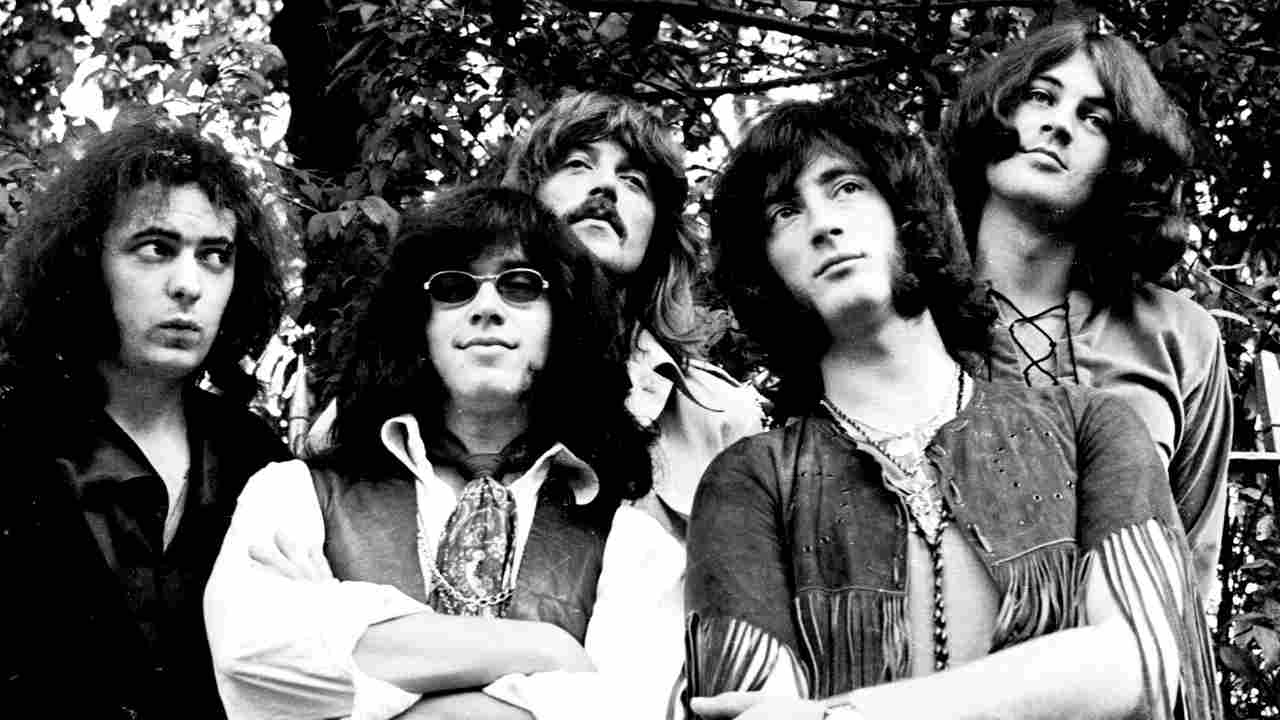“The audience threw lighters, bottles, ice cubes and coins. We managed four songs before being booed off”: the rollercoaster story of Loverboy, Canada’s greatest AOR band
Turn Me Loose, Working For The Weekend, Loving Every Minute Of It – Loverboy raised the maple leaf flag high in the 1980s
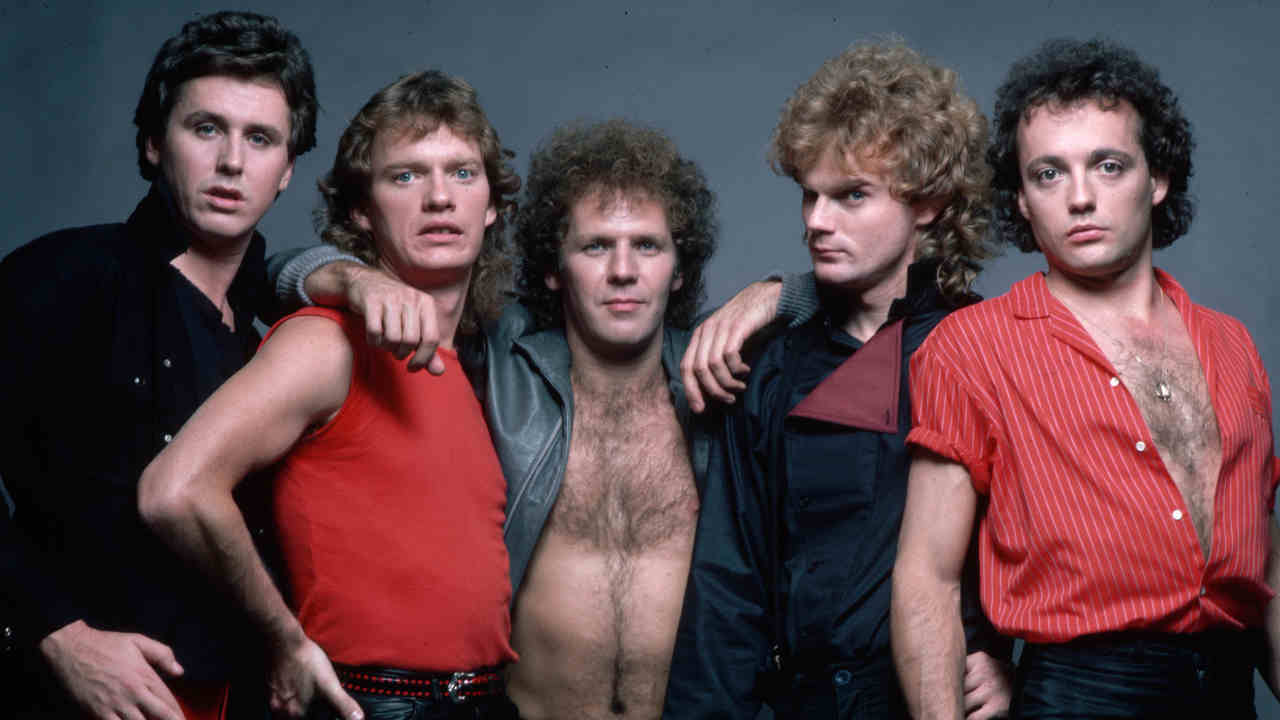
Select the newsletters you’d like to receive. Then, add your email to sign up.
You are now subscribed
Your newsletter sign-up was successful
Want to add more newsletters?

Every Friday
Louder
Louder’s weekly newsletter is jam-packed with the team’s personal highlights from the last seven days, including features, breaking news, reviews and tons of juicy exclusives from the world of alternative music.

Every Friday
Classic Rock
The Classic Rock newsletter is an essential read for the discerning rock fan. Every week we bring you the news, reviews and the very best features and interviews from our extensive archive. Written by rock fans for rock fans.

Every Friday
Metal Hammer
For the last four decades Metal Hammer has been the world’s greatest metal magazine. Created by metalheads for metalheads, ‘Hammer takes you behind the scenes, closer to the action, and nearer to the bands that you love the most.

Every Friday
Prog
The Prog newsletter brings you the very best of Prog Magazine and our website, every Friday. We'll deliver you the very latest news from the Prog universe, informative features and archive material from Prog’s impressive vault.
The arrival of Loverboy in 1980 made very little sense to those of us who were captivated by what you might term traditional hard rock. The appearance of five dorky Canadians dressed in sharp chinos, deck shoes and Miami Vice T-shirts made for something of a conundrum.
But for anyone who cared to look beyond the incongruous image, they had the pedigree. The band included two former members of killer Canuck combo Streetheart and, as a bonus, the singer from Moxy – names that were definitely on any hard rock connoisseur’s radar. Their self-titled debut album was produced by rising hotshot Bruce Fairbairn, who had been making a name for himself via his work with a smattering of cult AOR acts, including Prism.
But the album itself was the clincher: this was serious melodic AOR pop, driven by precision guitar work, with hooks somersaulting out of the tweeters like a troupe of New York street dancers. It was a modern sound, suggesting that these men of rock had studied the period’s pop chart climbers hoping to acquire a contemporary edge to set them apart from the likes of grizzly old Ice Road Truckers such as Bachman Turner Overdrive and Triumph.
Suited and booted, the arrival of Loverboy certainly put the cat amongst the pigeons, setting radio alight with hit after hit of furiously energetic and danceable AOR. North America couldn’t get enough of the band’s red jumpsuits, quirky keyboards and singer Mike Reno’s distinctive high-pitched vocals. But if you think it was overnight success story, then think again. Most of the guys in the band had been struggling in various groups since the 1960s, struggling to the point where they had almost – but not quite – given up on their dreams. But their perseverance paid off – Loverboy would become Canada’s most successful AOR band of all time.
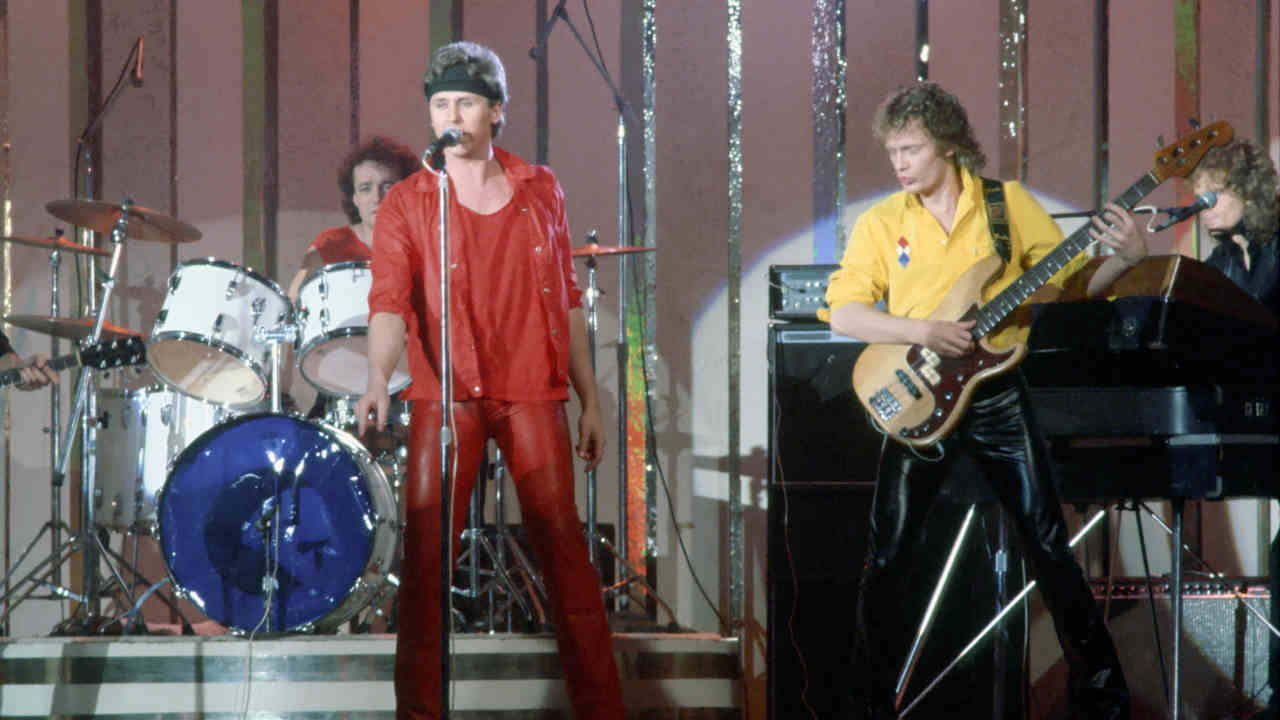
Before he co-founded Loverboy in Calgary, Alberta in 1979, guitarist Paul Dean had been a member of countless bands stretching back to the mid-60s, among them Kentish Steele And The Shantelles, Canada, Scrubbaloe Caine and Steelheart, the latter of whom released a well-received debut album, Meanwhile Back In Paris, in 1978. “We killed,” says Dean of the latter outfit. “It was really a great band. I used to think it was the Led Zeppelin of Canada.”
But Streetheart struggled to get noticed outside of their homeland. Worse, Dean lasted just one album before being fired, forcing him to play bass guitar in a Calgary covers band. “It was a tough time for me,” he says. “One thing is for sure though, it kicked my butt into gear.”
There was a silver lining to this particular cloud. He’d met keyboard player and future Loverboy bandmate Doug Johnson, and the two of them began writing songs together. Further good cheer was on the horizon in the form of singer Joseph Michael Rynoski – aka Mike Reno – who had been fronting well-respected hard rockers Moxy. Mike had moved from British Columbia to Calgary and was singing with a local unsigned band.
Sign up below to get the latest from Classic Rock, plus exclusive special offers, direct to your inbox!
“He was working in construction during the day, carrying cement around,” remembers Paul. “I had heard him sing in a band called Spunk, but at the time Mike was actually looking for a gig as a drummer. I thought he was an incredible singer, so I said maybe we should write some songs and we hooked up the next day and wrote Always On My Mind.”
Reno’s path to fame was equally littered with frustration and disappointment. Early in his career he’d joined an act called Hammersmith, only to bail when they recruited a second singer. He made a bigger splash when he joined Moxy for their fourth album, 1978’s Under The Lights.
“I worked with them for three years but after I got settled in I discovered that we didn’t share the same ambitions,” recalls Mike. “I wanted to achieve more and they kept trying to hold me down, but after a while I said: ‘I can’t do this.’ So I moved on and left.”
Hooking up with Dean and Doug Johnson, they decided to put all their energy into a new project, though not before the guitarist was forced to record some deliberately bad demos to wriggle out of the deal he’d signed with WEA/Atlantic as part of his former band Streetheart. Their first step was to recruit a band, which was easier said than done.
“We had a local bass player,” says Dean. “I think he was a stockbroker but he left pretty quickly. I remember we even stuck one guy on a train from Toronto – it took him four days to get here and it didn’t work out!”
They eventually settled on Dean’s old Streetheart buddy Matt Frenette on drums and bassist Scott Smith, who had been playing with quirky Canadian chanteuse Lisa Dal Bello. The scene was set for Loverboy to conquer the planet.
Cutting a set of demos on a boom box, they enticed Bachman Turner Overdrive manager Bruce Allen to get involved. Relocating to Vancouver to be nearer Allen, their next step was to cut some quality Eight-Track demos, including a killer version of Turn Me Loose, the song that would become their debut single
“That was the track that I’m sure got us the record deal,” states Paul. “Mike nailed the big note in the line ‘I’ve gotta do it my way’ in one take. We couldn’t believe it, he sounded amazing.”
Allen harangued a number of labels in the US, but it was the Canadian division of CBS that spotted the Loverboy’s potential. Bizarrely, CBS in the US had already been to see the band on their home turf and had passed. And it wasn’t until the huge success of the debut album in Canada that Columbia Records New York took any further interest.
With a record deal in their back pocket the band set about tracking their debut album with fast-rising producer Bruce Fairbairn.
“Bruce was being managed by our manager [Bruce Allen], who was also working with Prism,” Paul reveals. “He had produced some of the Prism albums, which we thought sounded great. In all honesty, we didn’t consider anybody else to produce us. It’s amazing to think that Bob Rock and Mike Fraser were the engineers – I mean, what a team! Those three guys went on to work with everybody.”
Loverboy, the band’s first album, was practically an overnight success – a triumph magnified by their eventual explosion of popularity in the US, with the record going on to sell over two million copies, and producing several hit singles.
“The public just jumped all over it,” recalls Mike, “and don’t forget that this was at a time when people would actually go out and buy a record. I was totally amazed at how great it was, just one of those moments in time I guess. My last band, Moxy, didn’t want to do anything like that. They didn’t want to dig deeper, and this was really working for me. I was elated.”
Dean’s previous disappointments had steeled him for his experiences with Loverboy. “In every band that I’d been in, I always felt like: ‘This is it, this band is perfect, the best combination of songs and players.’ So when the Loverboy album came out I thought, this is another great combination, as it had all the elements. My mission was to keep going, keep moving forward and this was a successful example of that philosophy.”
Dean realised that things were really started to happen when Bryan Adams – then experiencing his own first taste of success – tapped him up to become his guitar player.
“I was looking for a rental house in North Vancouver,” says Paul. “Bryan showed up at the rental place and he said to me: ‘Congratulations, you know you’ve got a hit, right?’ So he explained to me that Turn Me Loose was racing up the charts in all the radio trade magazines.”
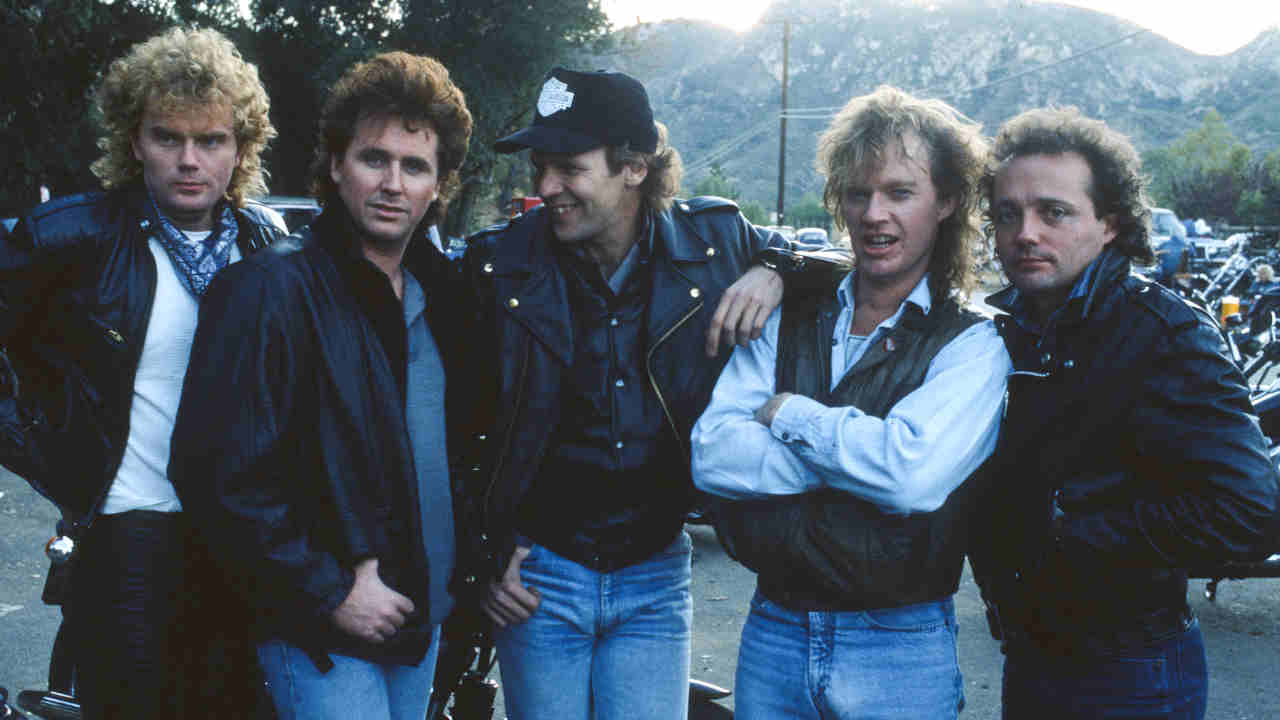
The band’s first show as a fully formed entity was to support Kiss in Vancouver. As you can imagine it was a tough, resistant crowd. Further trial by fire was to follow in the US opening for ZZ Top.
“We did 40 shows with them,” recalls Paul. “In between, we toured with Kansas, which wasn’t that great a fit but we became really good friends. The ZZ Top tour was tough, as their audience were hardcore biker blues fans. Mind you, the band were great guys and very generous to us, but the fans were a tough nut to crack. It taught us how to talk, how to move, how to interact. It was very educational, a baptism by fire almost.
“I remember one gig in Cape Cod when all hell broke loose so I put on my [baseball] batter’s helmet while the audience threw cigarette lighters, bottles, ice cubes and coins – it all came raining down on us. We managed four songs before being booed off stage. That was a wake-up call, I can tell you.”
For the band’s ‘difficult’ second album, Get Lucky, they wisely stuck to the same formula, utilising producer Bruce Fairbairn and crafting a string of immediately identifiable songs that actually propelled them further into the public consciousness. The track Working For The Weekend became something of a major anthem for the 80s blue-collar generation. The sound was lean and mean, showcasing a band with a degree of musical intelligence that dwarfed the competition. It was a monster success, selling in excess of four million copies in the US alone. It also marked the first time Mike Reno was photographed wearing a sweatband on his head.
Mike: “We had been working hard and writing songs all though the success of the first album. We had no idea if they were any good and we just threw Get Lucky out there. I think the momentum was just so strong that it worked. I suppose the songs and lyrics were right for the time, with diverse styles attracting a different range of fans. That all played a vital part in it.”
“We rehearsed the songs for Get Lucky in dressing rooms,” remembers Paul. “I remember we had a day to track some demos – Take Me To The Top came from that particular session. In fact I remember writing Watch Out with Doug while driving across Texas between gigs, singing that track into a ghetto-blaster. Get Lucky sold three million copies immediately in the US. That was a really great feeling.”
Loverboy’s third album, 1983’s Keep It Up, was also produced by Bruce Fairbairn, and continued the band’s chart momentum, reinforcing their songwriting prowess with yet more prime-time, radio-friendly party anthems. It was another US Top 10 album for the band, throwing down two killer singles: Hot Girls In Love and Queen Of The Broken Hearts. The album’s best cut was the truly monumental Strike Zone, an instant hard rock anthem, rivalling the majesty of the debut’s standout cut Turn Me Lose.
1985’s Lovin’ Every Minute Of It was even better. Featuring Steal The Thunder, Friday Night (a sequel in spirit to Working For The Weekend) together with the title track, the album gave Loverboy a harder rocking edge, increased dynamics and a more robust vibe. Breaking with Bruce Fairbairn, the band elected to use seasoned British producer Tom Allom, a man who’d built a fine reputation working on a number of cool hard rock albums including several by Judas Priest.
“We really liked what he did with Judas Priest, he made them sound awesome,” chuckles Mike Reno. “Bruce Fairbairn was busy finishing another project but we were ready to go and there was a timeline in place. So we gave Tom a call and had a great time with him and his engineer Mark [Dodson]. They both came over to Vancouver and really enjoyed themselves.”
Then the unthinkable happened: the golden times came to an abrupt end. Wildside, issued in 1987, stiffed badly, leaving the group scratching their heads as to what had gone wrong. It wasn’t a bad album, far from it; the material was up to scratch and Bruce Fairbairn was back in the producer’s seat. So what happened?
“We were the darlings of MTV but the first single, Notorious, just didn’t get the air time,” reckons Paul Dean. “Then we cut a very expensive video for Love Will Rise and they refused to play it – they spun it once, I believe. I guess they’d just had it with what they perceived as hair bands, and Loverboy were no longer considered part of their roster. I can understand it – if trends hadn’t changed, Bing Crosby would still be in heavy rotation.”
“I think there is a moment, a point when things become redundant because you’re too famous or you’re too wealthy or too popular or people start to get jealous,” adds Mike. “They begin to dislike you or they change their feelings towards you and you change your feelings towards them. It happens. It’s the same reason why style changes.
“We were pretty tired by then,” he continues. “ I started to lose interest, from being pushed so hard. I rebelled by not putting so much effort into it. I had no time to myself. I hated it because there should be a balance in life, but it was all go-go-go. I booked a holiday and got out of town but that’s all water under the bridge now.”
They soldiered on, of course, looking to rekindle the flame, but with the musical terrain beginning to shift toward murkier waters Loverboy were shuffling ever closer to the ‘where are they now’ file, looking out of time.
“I’ll be honest, I didn’t get grunge – and Nirvana in particular – at the time,” admits Paul. “It’s only the past few years that I’ve come to appreciate where they were coming from, song-wise. Now, when I listen to their music and compare it to their contemporaries, they set the standard. They wrote great songs, Kurt Cobain had a great voice and it was all wrapped up in amazing production.
“I remember when our co-manager Lou [Blair] first heard them, he was raving about it. I didn’t get it at all – I completely missed out and it took me years and years to finally say: ‘OK, now I get it.’”
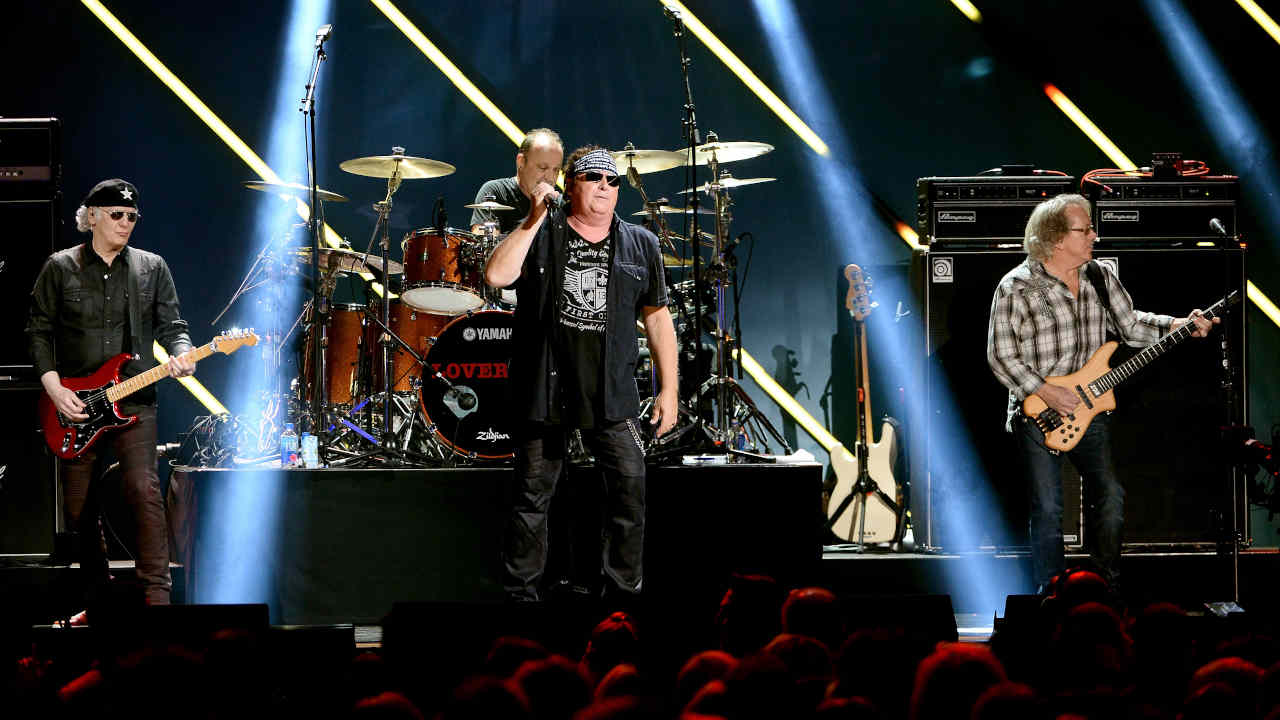
Like so many bands of their ilk, the 1990s weren’t easy for Loverboy. They toured sporadically, and released a sole album, Six. But worse was to come. On November 30, 2000, the band’s original bassist, Scott Smith, was sailing off the coast of San Francisco near the Golden Gate Bridge, when a freak 26-foot wave swept him overboard in shark-infested waters. A four-hour search was conducted in vain. He was 45. Loverboy began a tour in his memory the following year.
The 21st century has been more active. They’ve released three albums (2007s defiantly titled Just Getting Started, 2012’s Bob Rock co-produced Rock And Roll Revival and 2014’s Unfinished Business). In 2009, they were inducted into the Canadian Rock And Roll Hall Of Fame, but today they keep their expectations in check.
“We are under no illusion that we’re going to sell five million albums anymore,” says Mike. “Our expectations have gone down in line with reality.”
That’s Loverboy. Playing the game on their own terms and lovin’ every minute of it.
Originally published in Classic Rock Presents AOR issue 6
Derek’s lifelong love of rock and metal goes back to the ’70s when he became a UK underground legend for sharing tapes of the most obscure American bands. After many years championing acts as a writer for Kerrang!, Derek moved to New York and worked in A&R at Atco Records, signing a number of great acts including the multi-platinum Pantera and Dream Theater. He moved back to the UK and in 2006 started Rock Candy Records, which specialises in reissues of rock and metal albums from the 1970s and 1980s.
